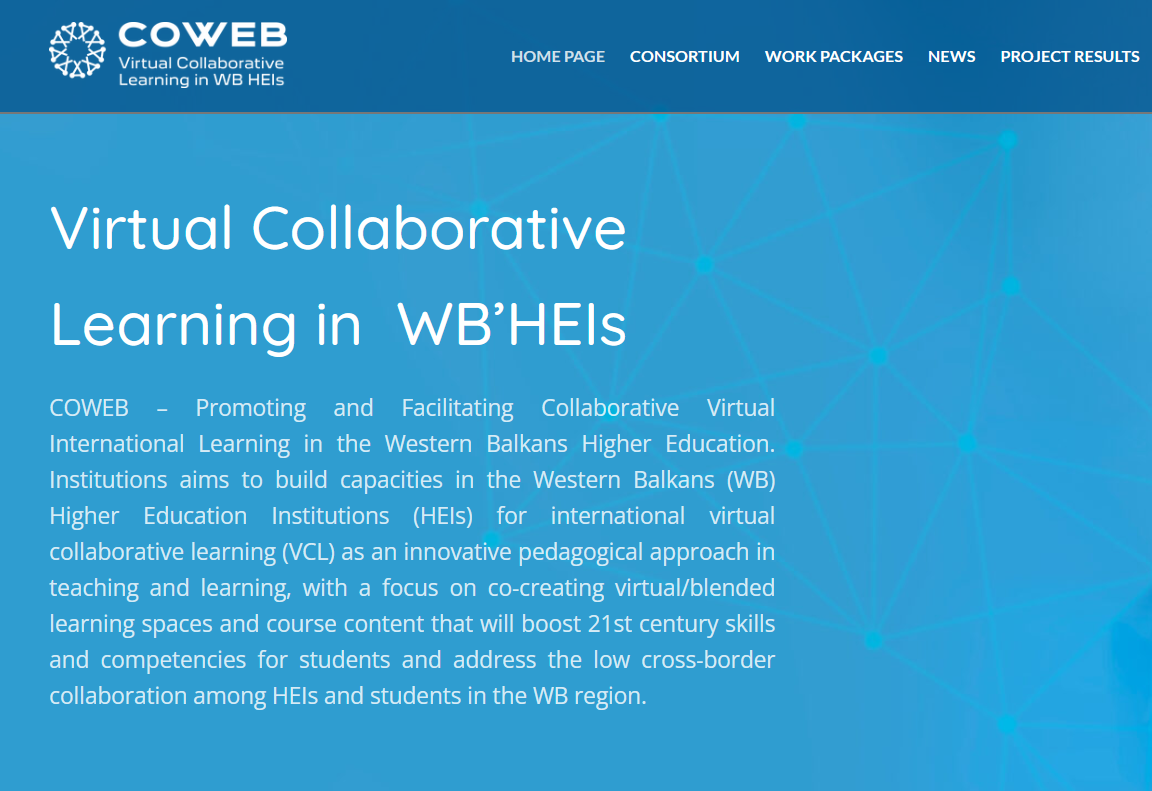The general objective of COWEB (Promoting and Facilitating Collaborative Virtual International Learning in the Western Balkans Higher Education Institutions), an Erasmus capacity building initiative, is to build capacities in the Western Balkans Higher Education Institutions for international virtual collaboration as an innovative pedagogy in teaching and learning, with a focus on co-creating virtual/blended learning spaces and course content that will boost 21st century skills and competencies and address the low cross-border collaboration among young students in the Western Balkans region. The virtual exchange activities planned in the framework of this project will further improve the digital culture among academic staff and students of the region. The outcomes of COWEB will have a significant and long-term impact on the targeted HEIs beyond the projects’ lifetime and as such benefit the society in general.
The project led by Epoka University Albania, brings together 10 partners, 3 from EU (Technical University of Dresden, International School for Social and Business Studies, and University of Salento), and 7 from Western Balkans HEIs (EPOKA University & European University of Tirana, University for Business and Technology & Biznesi College, International Burch University &, University of East Sarajevo and University of Montenegro) working together to define innovative virtual and blended learning spaces and course content to boost 21st-century skills and competencies and address the low cross-border collaboration among young students in the region. The project’s activities aim to enhance the digital culture among academic staff and students, with long-term impacts extending beyond the project’s lifetime.
The COWEB project has already accomplished significant milestones, including:
- Conducting training courses on VCL course design and implementation.
- Showcasing best EU cases of VCL.
- Delivering VCL course content and activities at local, regional, and international levels.
- Hosting an international forum on innovative virtual teaching and learning pedagogies.
- Training academic staff in pedagogical methodologies and teaching tools for VCL/COIL modules.
- Qualifying senior students as e-tutors.
- Defining KPIs to measure VCL course performance.
- Facilitating short-term exchanges of academic staff among EU and Western Balkans partners.
Find further information, please visit the project website

